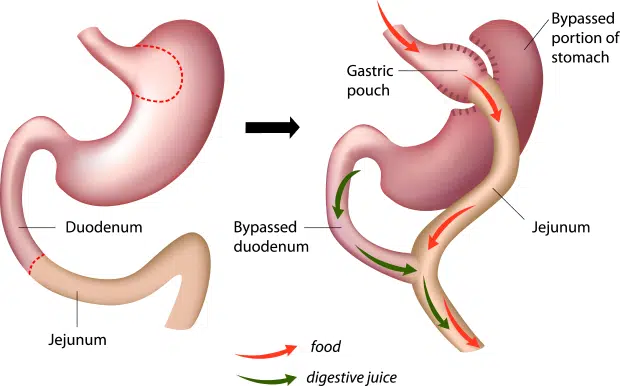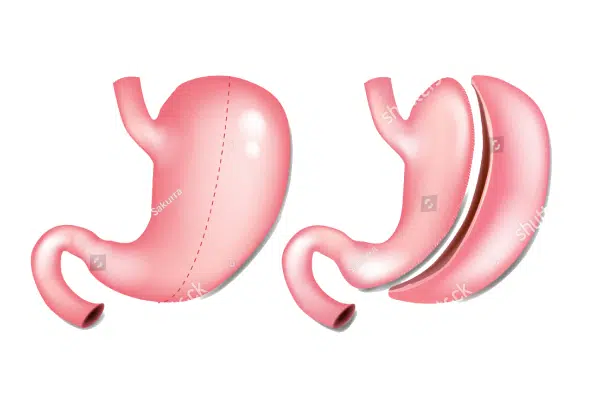Gastric Bypass versus Gastric Sleeve Surgery
Gastric bypass versus gastric sleeve surgery is a topic that often comes up between medical professionals and patients here at Beverly Hills Physicians. To understand how these procedures work and how they differ, it’s important to know why severely obese patients may need bariatric surgery in the first place.
We all know that severe obesity is bad for our health, happiness, and overall quality of life. However, as everyone who has ever struggled with their weight knows, permanently losing large amounts of weight is extremely difficult. That is because, as we begin to have some success losing weight, our bodies respond in a number of very unhelpful ways. That includes increasing the flow of hunger causing hormones in an effort to drive us to eat more and gain back the lost weight. While this might have been helpful in past eras when starvation was a constant menace, it’s anything but in a time and place where calories are all-too-easy to come by. Fortunately, advances in bariatric medicine now mean that we have proven tools at our disposal in the fight against obesity.
Two of the most commonly discussed procedures are the gastric bypass and the gastric sleeve, and new patients often wonder how the procedures differ and which might be better for them. Below is a brief rundown.

The older of the two options discussed here, gastric bypass substantially removes almost all of the stomach — except for a relatively tiny pouch. Moreover, as the name suggests, it also bypasses a portion of the digestive tract to reduce the number of calories a patient can absorb from food. As you can imagine, overeating loses its appeal as significant discomfort follows rapidly following overindulgence. In addition to the discomfort, a likely reduction in hunger hormones also may make it easier for patients to adjust to low calorie lifestyle.
While the gastric bypass has produced dramatic results for an enormous number of patients since the later decades of the 20th century, it is an undeniably radical procedure and there are some drawbacks. Dumping syndrome is the most notorious of the side-effects associated with the bypass. It may be an effective deterrent against overindulging, but it’s every bit as unpleasant as sounds. Another important issue is that, because patients effectively have a shorter digestive track after an operation, their ability to absorb nutrients, as well as calories, will be impaired. Certain foods will be permanently off the menu and patients will have to take supplements to ensure they are getting all the nutrients they need.

Sleeve gastrectomy surgery is a significantly less drastic procedure that has built up a very persuasive record of success. With a gastric sleeve procedure, the digestive tract remains mostly intact. The surgery consists of simply removing between 75 and 85 percent of the patient’s stomach and converting the remaining portion into a sleeve-like structure. This means that overeating will become uncomfortable, but patients digest their food normally and are allowed to eat most of the same foods they ate before, though in much smaller amounts. Best of all, it appears that the procedure’s increasingly well-documented hormonal benefit greatly reduces the urge to overeat in the first place, getting to the very root of obesity by attacking the bodily-driven excessive desire for food that makes substantial permanent weight loss so rare.

Want to Know More?
Neither of these procedures should ever be considered “the easy way out,” but they are highly effective. To find out more about weight loss procedures and which one might be right you, contact us today. Just call us at the phone number or request a free initial consultation online.
Promotionof the Month
Your choice of a Beverly Hills Physicians makes a big difference
Your choice of a Beverly Hills Physicians makes a big difference. Our fat transfer to buttocks procedure is provided by outstanding, board certified plastic surgeons and a support staff to help you through the entire process. The best way to get started is to request a free consultation at one of our offices. We look forward to hearing from you.

